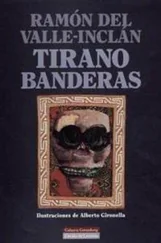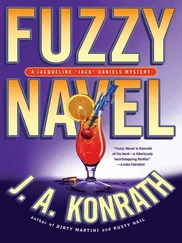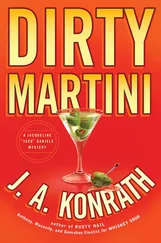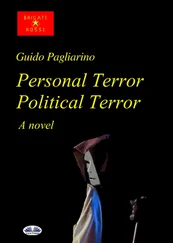The latch suddenly screeched and gave way, the door bursting open and slamming against the wall. Two figures stood outlined in the light from the hall. By their helmets, Kaempffer knew them to be German soldiers, and by their jackboots he knew them to be two of the einsatzkommandos he had brought with him. He should have relaxed at the sight of them, but for some reason he did not. What were they doing breaking into his room?
“Who is it?” he demanded.
They made no reply. Instead, they stepped forward in unison toward where he lay frozen in his bedroll. Something was wrong with their gait—not a gross disorder, but a subtle grotesquery. For one disconcerting moment, Major Kaempffer thought the two soldiers would march right over him. But they stopped at the edge of his bed, simultaneously, as if on command. Neither said a word. Nor did they salute.
“What do you want?” He should have been furious, but the anger would not come. Only fear. Against his wishes, his body was shrinking into the bedroll, trying to hide.
“Speak to me!” The command sounded like a bleat.
No reply. He reached down with his left hand and found the battery lamp beside his bed, all the while keeping the Luger in his right trained on the silent pair looming over him. When his questing fingers found the toggle switch, he hesitated, listening to his own rasping respirations. He had to see who they were and what they wanted, but a deep part of him warned against turning on the light.
Finally, he could stand it no longer. With a groan, he flicked the toggle and held up the lamp.
Privates Flick and Waltz stood over him, faces white and contorted, eyes glazed. A gaping crescent of torn and bloodied flesh grinned down at him from the place where each man’s throat had been. No one moved … the two dead soldiers wouldn’t, Kaempffer couldn’t. For a long, heart-stopping moment, Kaempffer lay paralyzed, the lamp held aloft in his hand, his mouth working spasmodically around a scream of fear that could not pass his locked throat.
Then the tableau was broken. Silently, a1most gracefully, the two soldiers leaned forward and fell onto their commanding officer, pinning him in his bedroll under hundreds of pounds of limp dead flesh.
As Kaempffer struggled frantically to pull himself out from under the two corpses, he heard a far-off voice begin to wail in mortal panic. An isolated part of his brain focused on the sound until he identified it.
The voice was his own.
Shaken
A bonus excerpt is from Joe’s novel, SHAKEN, also available in the Kindle Store…
Twenty-one years ago
1989, June 23
This guy isn’t a killer, Dalton thinks. He’s a butcher.
Dalton isn’t repulsed by the spectacle, or even slightly disturbed. He stays detached and professional, even as he snaps a picture of Brotsky tearing at the prostitute’s body with some kind of three-pronged garden tool.
There’s a lot of blood.
Dalton wonders if he should have brought color film. But there’s something classic, something pure, about shooting in black and white. It makes real life even more realistic.
Dalton opens the f-stop on the lens, adjusting for the setting sun. He’s standing in the backyard of Brotsky’s house, and his subject has been gracious enough to leave the blinds open. From his spot on the lawn, Dalton has a clear view into Brotsky’s living room, where the carnage is taking place. Though Brotsky has a high fence and plenty of foliage on his property, he’s still taking a big risk. There are neighbors on either side, and the back gate leading to the alley is unlocked. Anyone could walk by.
It’s not a smart way to conduct a murder.
Dalton has watched Brotsky kill two hookers in this fashion, and surely there have been others. Yet the Chicago Police Department hasn’t come knocking on Brotsky’s door yet. Brotsky has been incredibly lucky so far.
But luck runs out.
At least Brotsky has the sense to put a tarp down, Dalton thinks.
He snaps another photo. Brotsky’s naked barrel chest is slick with gore, and the look on his unshaven face is somewhere between frenzy and ecstasy as he works the garden tool. He’s not a tall man, but he’s thick, with big muscles under a layer of hard fat. Brotsky sweats a lot, and his balding head gives off a glare which Dalton offsets by using a filter on his lens.
Brotsky sets down the garden tool and picks up a cleaver.
Yeah, this guy is nuts.
Truth told, Dalton has done worse to people, at least as far as suffering goes. If the price is right, Dalton will drag someone’s death out for hours, even days. But Dalton gets no pleasure from the task. Killing is simply his business.
Brotsky is killing to meet baser needs. Sex. Power. Blood lust. Hunger, Dalton muses, taking a shot of Brotsky with his mouth full of something moist.
If Brotsky sticks to his MO, he’ll dismember the girl, wrap up her parts in plastic bags, and then take her severed head into the shower with him. When Brotsky returns, he’ll be squeaky clean, and the head will be gone. Then he’ll load the bags into his car and haul them to the dump site.
Dalton guesses it will be another eleven minutes. He waits patiently, taking occasional snapshots, wondering what Brotsky does with the heads. Dalton isn’t bothered by the heat or the humidity, even though it’s close to ninety degrees and he’s wearing a suit and tie. Unlike Brotsky, Dalton doesn’t sweat. Dalton has pores. He just never feels the need to use them.
Exactly eleven minutes and nine seconds later, Brotsky walks out his back door, dressed in shorts, sandals, and a wrinkled blue Hawaiian shirt. He’s lugging several black plastic garbage bags. The man is painfully unaware, and doesn’t even bother looking around. He walks right past Dalton, who’s hiding behind the girth of an ancient oak tree, gun in hand.
The hitman falls into step behind the butcher, his soft-soled shoes silent on the walkway. He trails Brotsky, close as a shadow, for several steps before jamming the Ruger against the fat man’s back. Brotsky stops cold.
“This is a gun, Victor Brotsky. Try to run and I’ll fire. The bullet will blow your heart out the front of your chest. Neither of us want that to happen. Do you understand?”
“Yes,” Brotsky says. “Can I put down these bags? They’re heavy.”
Brotsky doesn’t seem frightened, or even surprised. Dalton is impressed. Perhaps the man is more of a pro than Dalton had guessed.
“No. We’re going to walk, slowly, out to the alley. My car is parked there. You’re going to put the pieces of the hooker in the trunk.”
Brotsky does as he’s told. Dalton’s black 1989 El Dorado Roadster is parked alongside Brotsky’s garage. The car isn’t as anonymous as Dalton would prefer, but he needs to keep up appearances. The wiseguys he works for like Caddys, and driving the latest model somewhat compensates for the fact that Dalton isn’t Italian.
“Trunk’s open. Put the bags inside and take out the red folder.”
Brotsky hefts the bags into the trunk, and they land with a solid thump. The alley smells like garbage, and the summer heat makes the odor cling. Dalton moves the gun from the man’s back to his neck.
“Take the folder,” Dalton says.
The light from the trunk is sufficient. Brotsky opens the folder, begins to page through several 8x10 photos of his two previous victims. He lingers on one that shows him grinning, holding up a severed leg. It’s Dalton’s personal favorite. Black and white really is the only way to go.
“I’m a school teacher,” Brotsky says with the barest trace of a Russian accent. “I don’t have much money.”
Читать дальше











